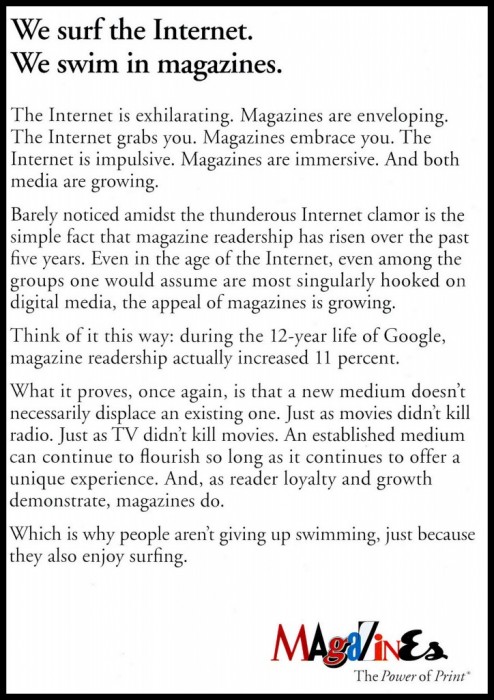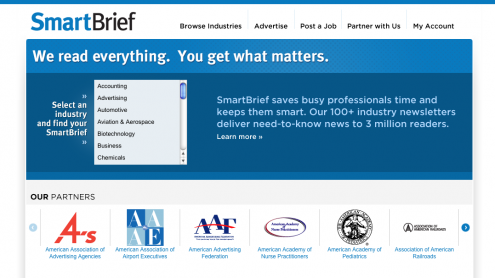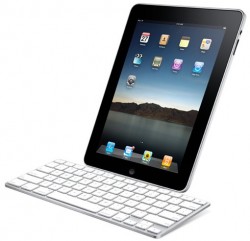This is a great piece by Neal Gabler on how original thought has taken a back seat to being informed. Teaser quote to make you click:
It may seem counterintuitive that at a time when we know more than we have ever known, we think about it less… While (Facebook, Twitter, iPhones, etc) may change the way we live, they rarely transform the way we think. They are material, not ideational. It is thinkers who are in short supply, and the situation probably isn’t going to change anytime soon.
It will if we decide to reflect more on our surroundings, noting what we don’t like about them and how we might fix them. To do that, however, we have to regularly remove ourselves from the information trough.
It’s difficult for the brain to think if it’s always capturing data.
 Today, auctions represent only 31% of all Ebay sales. A decade ago, Ebay was suppose to change the way everything was bought and sold. That didn’t happen. A new article in Wired tells why:
Today, auctions represent only 31% of all Ebay sales. A decade ago, Ebay was suppose to change the way everything was bought and sold. That didn’t happen. A new article in Wired tells why:
To begin with, the experience of auctions changed over time, generally in ways that made them less appealing to both buyers and sellers. Scot Wingo, CEO of ChannelAdvisor, which consults for ecommerce companies, points to the advent of sniping—the practice of placing winning bids at the last second—as something that has alienated ordinary shoppers…
Bargains, too, have become less common, as the market matured and people on both sides of the transaction became savvier…
Really, though, the biggest factor in the decline of the auction may simply be that the novelty of bidding wore off. “The Internet stopped being a source of wonder and became a place to do certain kinds of business,” Koehn says. “Once that happens, you start to think about things like ‘Does it make sense to spend this much time on an auction when I might not even get the item in the end?’” In econospeak, the hedonic benefits of bidding on eBay diminished.
In my opinion, I think the information age has simply normalized pricing. By that I mean you can save a buck or two on ebay, but you really have to work for it… and wait for it. Why not “buy it now” for a few bucks more elsewhere?
 As seen in this month’s issue of Wired.
As seen in this month’s issue of Wired.
My thoughts: Agreed that information technology isn’t always replaced by newer technology (i.e. pens, pencils, paperbacks). But to suggest that printed magazines are actually thriving is a bit of stretch. My guess is the quoted “11 percent growth” stems from that fuzzy “pass along” metric magazines still use to measure audience size. (And to suggest that magazines are the superior way of reading essays is also wrong.)
Either way, stop hard-selling yourself, magazines. We know what you’re good for: Bathrooms, waiting lobbies, and other offline environments.

When I first discovered RSS, I went crazy. I subscribed to more than 400 feeds out one time. Ridiculous. And even though I’ve since reduced that number to a mere 40, I’m still inundated with repurposed, rehashed, and regurgitated information. Why can’t someone just point me to the good stuff?
Actually, someone can. At least as it pertains to business and technology headlines. They’re called Smart Brief. They claim to “read everything” so “you get what matters.” And after a week of subscribing to their various newsletters, I can honestly say they deliver on their promise.
As a result, I’ve unsubscribed to even more feeds. Now if only Smart Brief covered more consumer areas, I might be able to relegate my Google Reader to personal feeds only.
 As this report so eloquently states, media is still best consumed with a mouse and keyboard, passive video, or with opposing hands leafing through pages of information. “Interactive media” as seen on the iPad is as useful as “multimedia CD-ROM dictionaries” from the 1990s, m’kay?
As this report so eloquently states, media is still best consumed with a mouse and keyboard, passive video, or with opposing hands leafing through pages of information. “Interactive media” as seen on the iPad is as useful as “multimedia CD-ROM dictionaries” from the 1990s, m’kay?
Now if you’re talking about entertainment, I’m all for gesture based interaction. But for straight consumption of information, give me visual ads, easy flowing editorial, and search.

 Today, auctions represent only 31% of all Ebay sales. A decade ago, Ebay was suppose to change the way everything was bought and sold. That didn’t happen. A new article in Wired
Today, auctions represent only 31% of all Ebay sales. A decade ago, Ebay was suppose to change the way everything was bought and sold. That didn’t happen. A new article in Wired  As seen in this month’s issue of Wired.
As seen in this month’s issue of Wired. 
 As
As